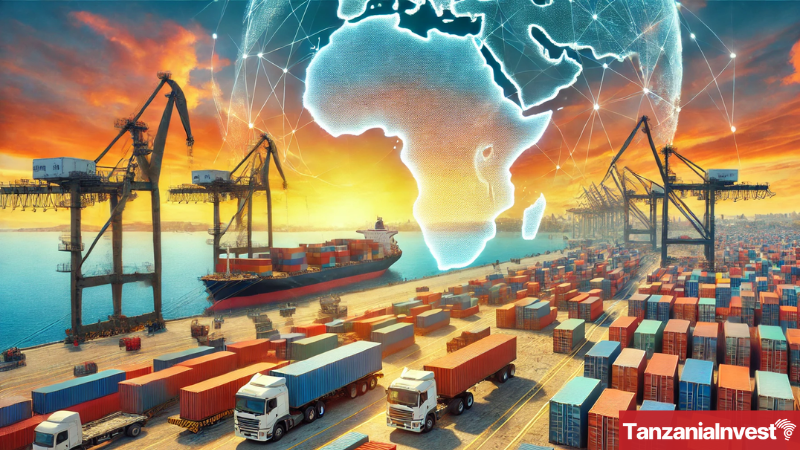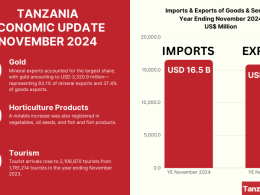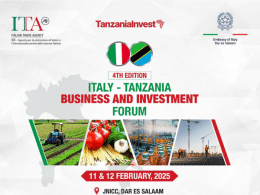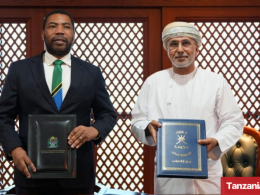Tanzania’s goods exports to Africa were valued at US$ 2.65 in 2023 and imports at US$ 1.5 billion in 2023, according to data from the International Trade Centre.
The data was disclosed on 18th October 2024 by the Membership and Business Development Manager of the East African Business Council (EABC), Zephania Shaidi during a training session organized by the EABC and the Team Europe Technical Assistance Facility to Support the AfCFTA and Continental Economic Integration (EU-TAF) in Dar es Salaam.
The event brought together private sector representatives from diverse industries, including manufacturing, agro-processing, SMEs, creative industries, transport, and government officials.
The training aimed to enhance the capacity of over 50 small and medium-sized enterprises (SMEs) to leverage the opportunities under the African Continental Free Trade Area (AfCFTA).
The SMEs engaged in discussions on value chain analysis to improve their products and services, identifying gaps and opportunities to enhance operational efficiency, resource utilization, financial performance, profitability, product quality, and sustainable competitive advantage in light of the AfCFTA.
Shaidi noted that Africa’s limited participation in global value chains, driven mainly by commodities, necessitates value addition, industrialization, improved infrastructure, and an integrated market under the AfCFTA agenda.
On his part, Raphael Maganga, CEO of the Tanzania Private Sector Foundation (TPSF), emphasized the vast opportunities presented by the AfCFTA, which connects 1.3 billion consumers and a combined GDP of an estimated US$ 3.4 trillion.
Clement William Kamendu, Chairman of the Tanzania Shippers Council (TSC), called for collaborative efforts to reduce transport and logistics costs, noting that intra-African trade accounts for only 16% of Africa’s total trade volume, compared to 57% in Asia and 68% in Europe.
Tanzania Trade With Africa and the AfCFTA
Tanzania’s major exports to other African nations include gold, raw copper, and various agricultural products, which are increasingly in demand in neighboring countries.
The primary imports Tanzania receives from other African nations include refined petroleum, vehicles, and various manufactured goods.
As one of the pioneering countries in the AfCFTA Guided Trade Initiative (GTI), Tanzania is actively testing the operational framework of the agreement, which aims to create a unified market for goods and services across Africa.
The Tanzanian government has revised its National Trade Policy to align with AfCFTA objectives, emphasizing the importance of regional cooperation and infrastructure improvements to support trade flows.
The AfCFTA prioritizes key value chains, including agriculture, pharmaceuticals, automotive, transport and logistics, textiles, and apparel, aiming to boost regional trade, create jobs, and improve Africa’s global competitiveness.










